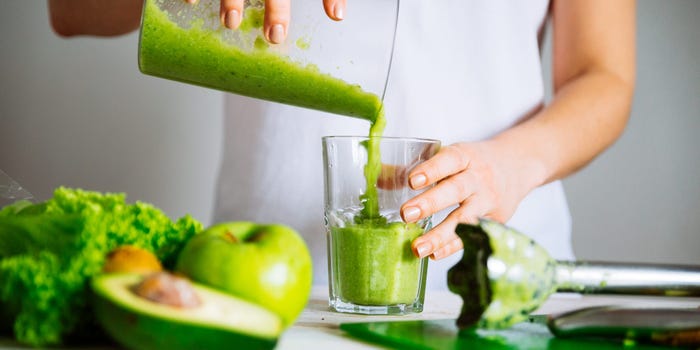Do you find yourself feeling sluggish, bloated, and in need of a fresh start? You’re not alone. Detox diets often promise a quick fix for these common complaints, but do they really live up to their claims? In this article, we dive deep into the world of detox diets to uncover the truth behind these popular cleanses. So grab your green juice and join us as we separate fact from fiction in the world of detoxing.

Debunking the Myths Surrounding Detox Diets
Detox diets have been a hot topic in the health and wellness world for years, with many people believing in their ability to cleanse the body of toxins and promote weight loss. However, the reality is that detox diets are often based on myths and misconceptions that can do more harm than good. Let’s delve into some of the most common myths surrounding detox diets:
- Myth: Detox diets eliminate toxins from the body. In reality, our bodies are already equipped with organs like the liver and kidneys that naturally detoxify and eliminate toxins. Detox diets may not be necessary for this process.
- Myth: Detox diets promote long-term weight loss. While detox diets may lead to short-term weight loss due to calorie restriction, this weight loss is often unsustainable and can even lead to metabolic damage in the long run.
- Myth: Detox diets improve energy levels and overall health. In fact, many detox diets lack essential nutrients and can leave you feeling fatigued and malnourished. It’s important to focus on a balanced diet for long-term health benefits.
Understanding the Purpose of Detox Diets
Detox diets have gained popularity in recent years as a way to cleanse the body and improve overall health. But what exactly is the purpose of these diets? Let’s dig deeper and uncover the truth about detox diets.
One of the main purposes of a detox diet is to rid the body of toxins and impurities that have built up over time. By eliminating processed foods, sugar, caffeine, and alcohol, the body is able to reset and rejuvenate. This can lead to increased energy levels, improved digestion, and clearer skin.
Another goal of a detox diet is to promote weight loss. By focusing on whole, nutrient-dense foods like fruits, vegetables, and lean proteins, individuals may experience a decrease in bloating and water retention. This can result in a slimmer waistline and a boost in confidence.
Overall, is key to successfully incorporating them into your lifestyle. Whether you’re looking to kickstart a healthier routine or simply give your body a break, a well-balanced detox diet can be a beneficial tool in achieving your health goals.
Examining the Potential Risks and Benefits of Detoxing
Detox diets have gained popularity in recent years, with many claiming that they can help rid the body of toxins and promote overall health. However, it is important to examine both the potential risks and benefits of following a detox diet before jumping on the bandwagon.
One potential benefit of a detox diet is that it can help kickstart healthier eating habits. By eliminating processed foods and focusing on whole, nutrient-dense foods, individuals may experience increased energy levels, improved digestion, and weight loss.
On the flip side, some detox diets can be very restrictive and may lead to nutrient deficiencies. It is essential to ensure that any detox diet is balanced and provides all the necessary vitamins and minerals for optimal health. Additionally, some detox diets may not be suitable for everyone, especially those with certain medical conditions or dietary restrictions.
Tips for Incorporating Detoxifying Foods into Your Diet
One of the best ways to incorporate detoxifying foods into your diet is by focusing on whole, natural foods that are rich in antioxidants and nutrients. Start by adding more fruits and vegetables to your meals, as they are packed with vitamins and minerals that help support your body’s natural detoxification processes.
Another great tip is to include more fiber-rich foods in your diet, such as legumes, whole grains, and nuts. Fiber helps to keep your digestive system running smoothly and can aid in the removal of toxins from your body.
Additionally, don’t forget to drink plenty of water throughout the day. Staying hydrated is essential for flushing out toxins and keeping your body functioning optimally. Herbal teas and green juices can also be great additions to your detox diet, providing additional nutrients and antioxidants to support your body’s detoxification process.
In conclusion, while detox diets may offer some short-term benefits, it’s important to approach them with caution and skepticism. Remember, your body has its own built-in detoxification system, and fad diets may not provide a sustainable solution for long-term health. Instead, focus on nourishing your body with whole, nutritious foods and staying hydrated. Always consult with a healthcare professional before making any drastic changes to your diet. Stay informed, stay healthy, and listen to what your body truly needs.
